Protests against execution of Shia activists rage on in Bahrain
Anti-regime protests continue across Bahrain in strong condemnation of the recent execution of three Shia Muslim activists, whom the Al Khalifah regime alleged had killed three policemen during a pro-democracy demonstration back in March 2014.
People took to the streets in several villages, including Diraz, Barbar, al-Daih and Sar, following Friday prayers to express their outrage over the executions and denounce the Al Khalifah regime’s repressive measures against political dissidents.
Scores of demonstrators had also marched along streets in the Bilad al-Qadeem suburb of the capital, Manama, on Thursday evening, waving national flags and holding pictures of the executed activists.

They chanted slogans against King Hamad bin Isa Al Khalifa as well, and demanded the downfall of the ruling dynasty.
Protesters in the village of Ma'ameer, situated about 15 kilometers south of the capital, carried a large banner in protest at the prevalent corruption in the kingdom, holding King Hamad fully responsible for the killings.
In the village of Nuwaidrat, located about ten kilometers south of Manama, the demonstrators vowed to exact revenge for the executions, and press ahead with their pro-democracy rallies.

Additionally, people blocked roads with burning tires and threw firebombs at an anti-riot police vehicle in Eker village. Regime forces fired birdshots in order to disperse the crowd.
On January 15, Bahrain executed Abbas al-Samea, 27, Sami Mushaima, 42, and Ali al-Singace, 21, by firing squad. The killings came a week after the Court of Cassation upheld death sentences against the trio after finding them guilty of killing three policemen, including an Emirati officer, in the northern village of al-Daih back in March 2014.
Even the United States, the strongest ally of the Al Khalifah regime, reprimanded Bahrain over the executions on Tuesday.
“We're concerned that these executions occurred at a time of elevated tension in Bahrain,” US State Department spokesman John Kirby said.
He added, “We've also seen allegations that the individuals facing execution were victims of torture, and that the evidence used against them in court was extracted, in part, through coerced confessions.”

Bahraini opposition al-Wafa’a Islamic Party announced in a statement late on Monday that it is turning to armed resistance as the only way to get legitimate public demands fulfilled in the face of the Al Khalifah regime’s harsh crackdown in the country.
“We in al-Wafa’a declare that we have started a new phase. We have one hand in the streets and the other on the trigger,” the party’s leader, Sayed Morteza al-Sanadi, said.
“For six years we have been adhering to peaceful methods ... For six years we have been appealing to the whole world and in return we got nothing but tears,” Sanadi added, vowing that al-Wafa’a “will exact punishment for the trio’s blood.”
Bahrain sets date for trial of prominent rights activist
Meanwhile, Bahraini judicial officials have set January 23 as the date for the trial of prominent human rights activist Nabeel Rajab, who has been behind bars over online comments deemed insulting to the ruling Al Khalifah regime and Saudi Arabia.
Rajab, the founder of the Bahrain Center for Human Rights, is accused of "spreading false news and rumors during a time of war." If found guilty, he could be jailed for 15 years.
He was arrested on June 13 last year for comments on Twitter that criticized the kingdom's role in Saudi-led military operations in Yemen, according to Human Rights Watch.

On November 24, the rights campaigner was taken to hospital from prison due to heart problems after being held in solitary confinement for three months.
The 52-year-old activist has been repeatedly detained for organizing pro-democracy demonstrations and publishing Twitter posts deemed “insulting” to the Bahraini authorities.
He was pardoned for health reasons, but arrested again on June 13, following an intensive search of his house in the northwest of the country. Reports suggest he has been subjected to harassment in jail.
Human Rights Watch has called for Rajab's immediate release, saying the charges against him "inherently violate the right to free expression."
Anti-regime protesters have held demonstrations on an almost daily basis ever since the popular uprising began in Bahrain in February 2011.
They are demanding that the Al Khalifah family relinquish power and let a just system representing all Bahrainis be established.
After year-long genocide, Israeli military hires private firms to flatten buildings in Gaza
Malaysia working on resolution to expel Israel from United Nations
Israeli military made no territorial gain in Lebanon: Report
VIDEO | 70 Palestinians killed in Israeli strikes across Gaza Strip
US Election Day: First votes cast in New Hampshire
Nov. 4: ‘Axis of Resistance’ operations against Israeli occupation
Britons demand release of pro-Palestine activists
VIDEO | Israel's unwinnable war in Lebanon


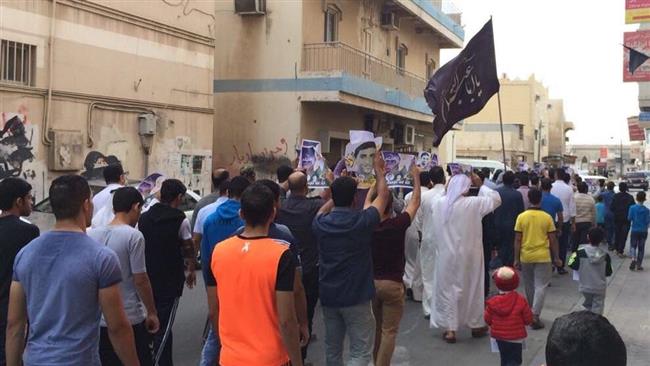
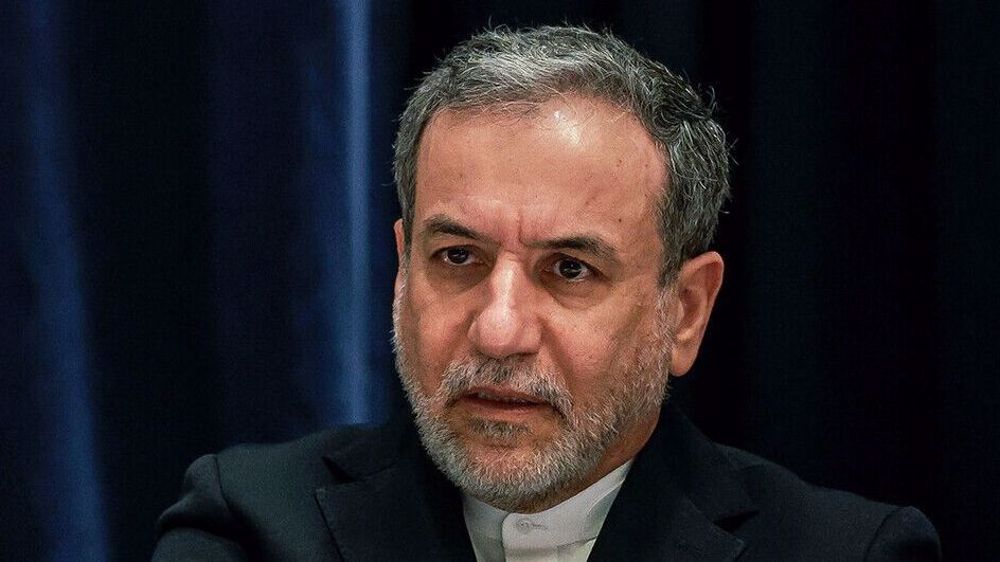
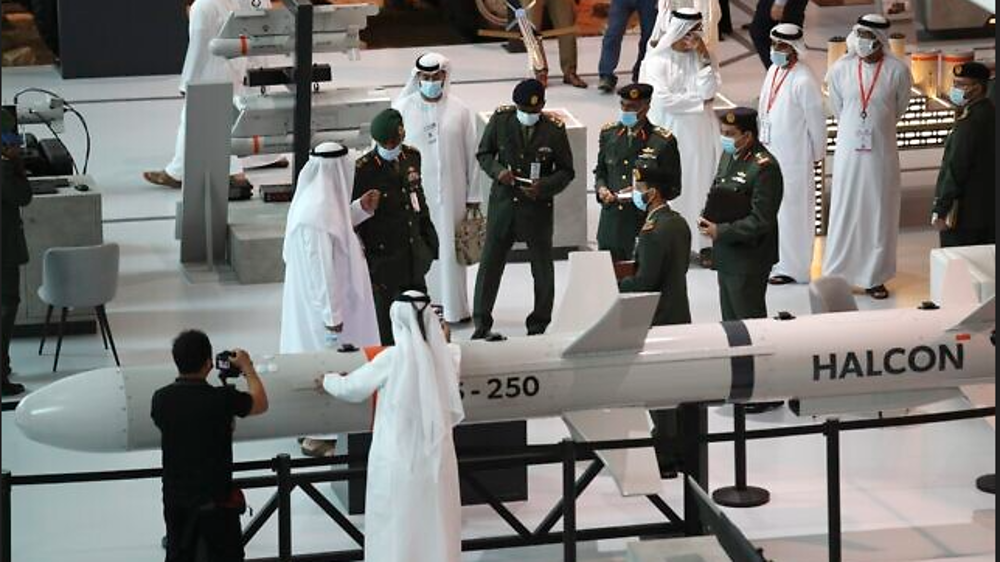
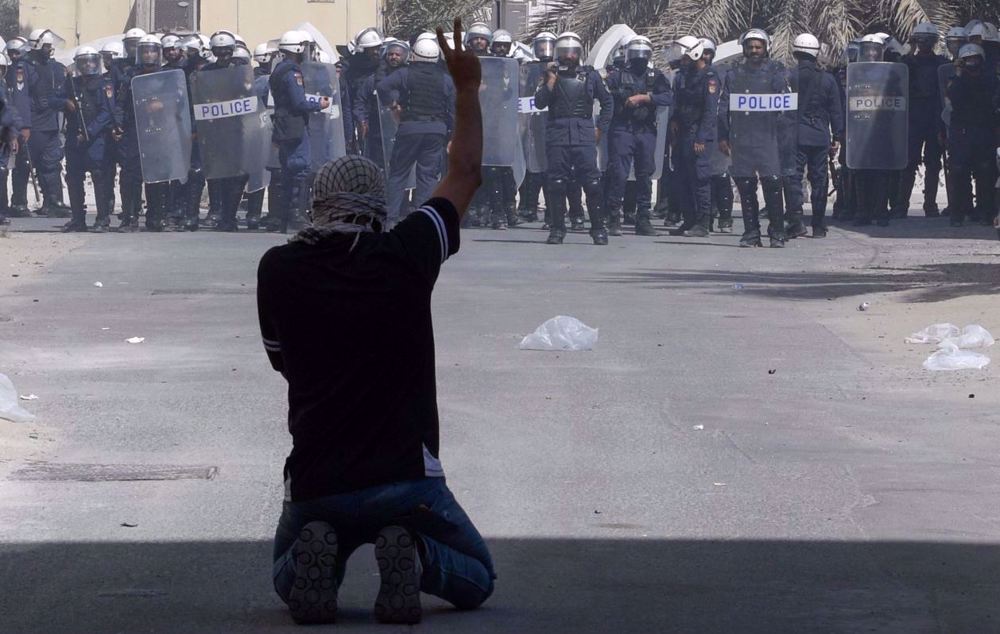



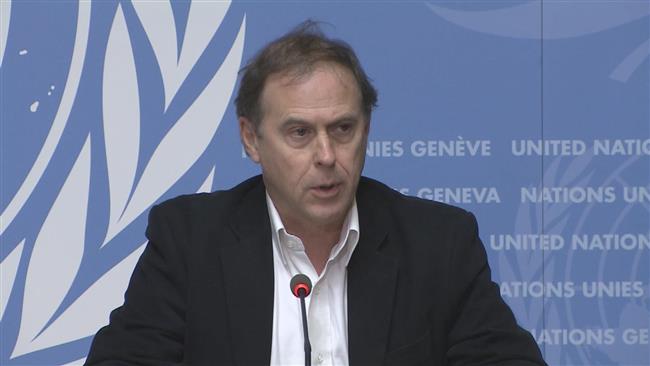
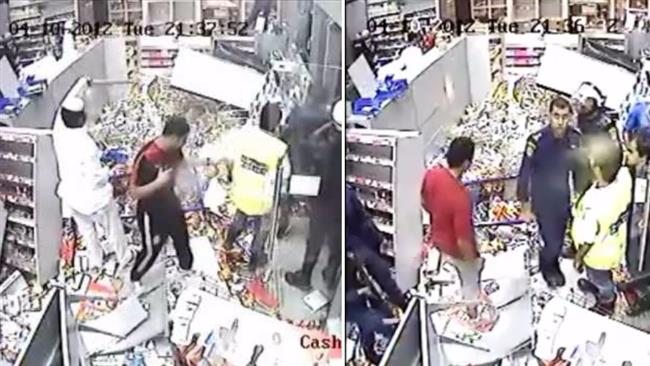
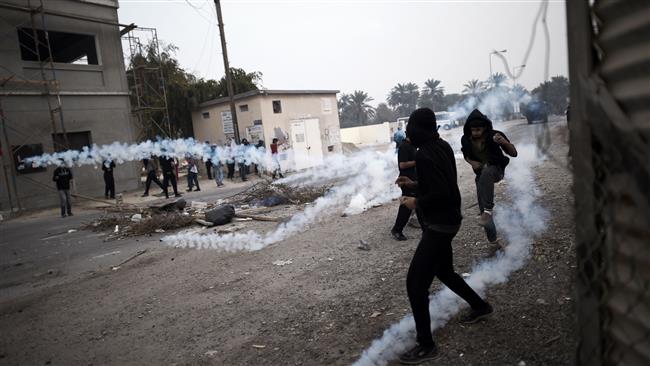




 This makes it easy to access the Press TV website
This makes it easy to access the Press TV website